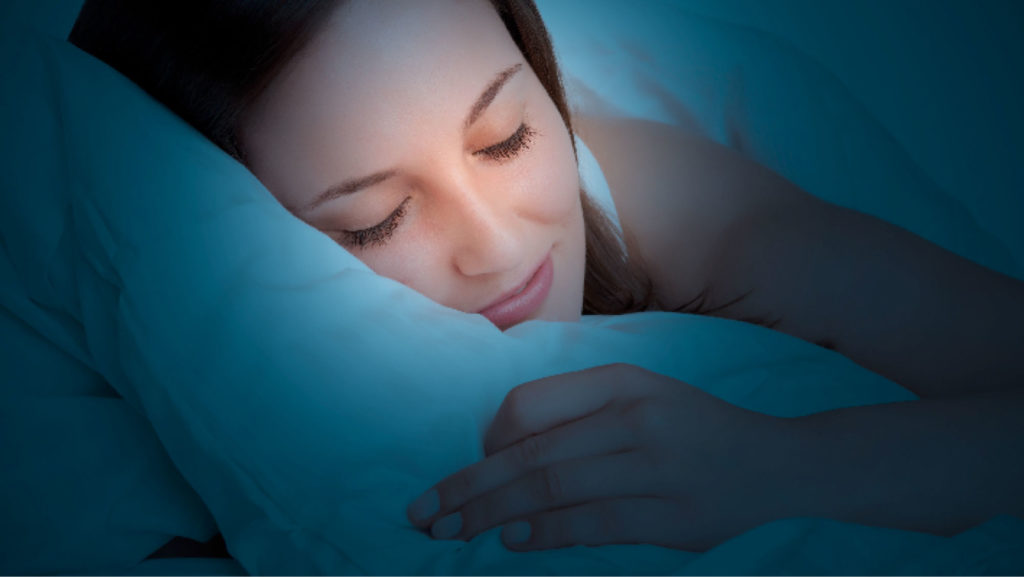A universal truth, across all continents and cultures, is that a good night’s sleep feels amazing. Deep, restful sleep fuels the body and mind for whatever the new day brings. On the flip side, a poor night’s sleep can make the mind foggy, the body weak, and getting through the day feels like a struggle. For many in the U.S. insomnia is a common sleep disorder that can make it hard to fall asleep, stay asleep, or cause someone to wake up too early and not fall back asleep. As insomnia persists, it can weaken the immune system, decrease metabolism, cause problems in memory recall, and even lead to or exacerbate serious health conditions. To get a good night’s sleep, insomnia sufferers turn to prescription medications, over the counter medications, or cognitive behavioral therapy, but these methods come with side effects and limitations. Fortunately, an alternative source of relief for quality restorative sleep can be found in cannabis.
THE SIGNIFICANCE OF SLEEP
Sleep is the most important aspect of maintaining good health. During sleep, the brain repairs and restores its tissue and drains toxins away from neurons, the body produces growth hormones to grow muscles and repair tissue, creativity is boosted, and memories are consolidated. The higher quality the sleep, the more a person benefits from these processes. Better sleep also puts people in a better mood. One Gallup poll showed 63% of adults who got the sleep they needed were very satisfied with their personal life, compared to 36% of adults who did not get enough sleep. Sleep makes people happier and healthier. Unfortunately, far too many people do not get enough sleep because they cannot sleep consistently or get the quality of sleep they need. There are many reasons people struggle with sleep. Chronic pain makes it difficult for the body to relax and get comfortable. Stress keeps the mind awake with worry. Some mental health conditions, such as anxiety, depression, and PTSD can make falling asleep difficult. A significant proportion of people who struggle with insomnia have bad sleep habits which include going to bed and getting up at irregular times, eating a spicy meal or sugary dessert too close to bedtime, or stimulating activity such as using their computer or cell phone right before bed. Also, consuming caffeine, nicotine, or alcohol late in the day or before bed can make getting a restful sleep nearly impossible.
THE ILLS OF INSOMNIA
Every part of someone’s life can be affected by insomnia. From physical and mental health to the ability to do quality work and react quickly while driving, good sleep is the foundation of good health and a good life. A lack of sleep makes it hard to get up in the morning, maintain a good mood, and perform efficient and accurate work. Studies have found mood is far more impacted by the stress of life and a good night’s sleep than financial stability. It’s estimated 30% of Americans are not well rested, impacting families, workplaces, and communities across the country. Sleep loss is also a predictor of depression, a serious mental health condition, particularly in young people. One study showed adolescents 12-18 years old who get 5 hours rather than 8 hours of sleep are at 71% higher risk of depression. When someone achieves REM sleep, the deepest stage of sleep, their brain can process emotional experiences and protect them against depression. Another negative aspect of not enough sleep is weight gain. Sleep deprivation increases hunger and stress inducing hormones while decreasing hunger suppression hormones, making weight loss more difficult and bad eating habits more likely. Because sleep is so crucial, many people turn to prescription drugs, over the counter medications, or cognitive behavioral therapy to find relief, often to mixed results. Cognitive behavioral therapy is done with the assistance of a therapist to change the way a person views sleep, their sleep habits, and to find different ways to reduce stress and anxiety that can be the cause of the insomnia. While this method has produced successful results, finding the right combination of treatment, therapist, and discipline to form new habits can take too much time. More often insomniacs try prescription or over the counter medications. Prescription sleeping pills, such as Lunesta or Ambien, help users get to sleep, stay asleep, or in some cases both. These pills are potent and are only recommended for use a few weeks at a time, as they are habit forming and have side effects, including daytime grogginess and an increased risk of falling, to name a few. Over the counter medications are less powerful than prescription pills, but they are not without their problems. Most are based on antihistamines which make the user drowsy. While drowsiness would certainly make falling asleep easier, side effects of these medications include daytime sleepiness, dizziness, confusion, cognitive decline and difficulty urinating, which may be worse in older adults.

CANNABIS TO THE RESCUE
Cannabis has been found to be an effective therapy to help against insomnia and one of the primary reasons people use cannabis. For all the factors that cause insomnia; pain, stress, anxiety, and other medical conditions, there is a cannabis product that can help treat symptoms and provide a blissful relaxing slumber. Products with an emphasis on CBD treat stress, anxiety, chronic pain, inflammation, or restlessness. Products that emphasize THC treat pain, inflammation, and relax the mind from worries. It may take a little research and testing to find the ideal cannabis combination, but once found a good night’s sleep is well worth the effort. Along with cannabis, adjusting behavior to achieve quality sleep can go a long way to stop insomnia in its tracks. Simple things like avoiding caffeine in the afternoon and large meals before bedtime are positive habits that can easily become routine. Other sleep improvement changes like sticking to a sleep schedule and regular exercise can be harder to maintain, but the benefits to these routines are fast acting and positively influence other healthy habits.
SENSI PRODUCTS FOR INSOMNIA
Sensi Products has a family of cannabis products that help the user achieve deep restful sleep for 6-9 hrs depending on the users age and metabolism. While all of Sensi’s products can treat different health conditions, thus making falling asleep easier, there are a few that are geared specifically toward promoting better quality sleep. For instance, Sensi Chew Insomnia with THC and Sensi Chew Insomnia Plus with CBD are edibles infused with melatonin, a naturally occurring chemical produced in the brain to start the falling asleep process. Taken sublingually, Sensi Chew goes to work in 15-20 minutes. Sensi Chew Insomnia’s THC content makes it a great choice for those hoping to find calmness of the mind, still an uneasy stomach, or relax tight muscles and relieve pain. If someone is having trouble sleeping due to stress, anxiety, pain, and prefers a non-psychoactive effect, Sensi Chew Insomnia Plus with CBD is a good choice, particularly for older users who are not comfortable with THC. Another option for those who prefer the convenience of a pill, Sensi Caps CBD Softgels 25:1 which is 25mg CBD and 1mg CBD per softgel. Sensi Caps provide a gentle relaxing effect to bring on the feeling of sleep while reducing pain and inflammation.
“I have to say that Sensi Chew Insomnia works so well! I’ve had edibles over the years and these are the best. I’m 63 years old and I now use these over Ambien. It helps my pain and I sleep great. I’m happy with the taste, how long it lasts, and I like the packaging.” – CP, Orange CA
“I am an 85 year-old retired Firefighter who had never really been interested in smoking, or even trying medicinal marijuana, but my grandson convinced me to try Sensi Chews for my pains and insomnia. In the evening, about 30-45 minutes before bed I had the insomnia chew, letting it melt in my mouth for a bit to get the effects a little faster, then swallowed to allow the rest to digest and medicate me fully. I was asleep in about 30 minutes and had the best night sleep that I have had in a long time. I am now a believer and a patient for life. Thank you Sensi Chews!” – Firefighter Bill, CA
REFERENCES
“Insomnia.” Mayo Clinic, Mayo Foundation for Medical Education and Research, 15 Oct. 2016, www.mayoclinic.org/diseases-conditions/insomnia/diagnosis-treatment/drc-20355173.
Myers, David G., and C. Nathan DeWall. Myers Psychology for AP. Bedford, Freeman & Worth High School Publishers, 2018.
Rahn, Bailey. “Cannabis and Sleep: 10 Things to Know About Your Herbal Nightcap.” Leafly, 6 Mar. 2019, www. Leafly.com/news/cannabis-101/cannabis-and-sleep.









I have tried Sensi chew insomnia and it was very effective. It made me feel normal and relaxed. I would like to try Sensi amore to help enjoy more closeness with my husband. How can I purchase these items? Thank you.
Rachel Ikola
Why does your product contain a cancer warning p65warning?
The Bureau of Cannabis Control, the CDPH, and the FDA have required that all cannabis manufacturers put this label on products. They have no proof that of course. There are many people who use cannabis for help themselves heal from a wide range of conditions. As cannabis becomes more accepted, new research will reveal more insights so we don’t have to put scary statements on packaging.